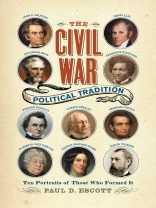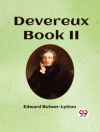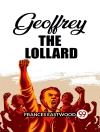Modeling his latest book on Richard Hofstadter’s 1948 classic The American Political Tradition and the Men Who Made It, the renowned historian Paul Escott has composed ten concise but deeply learned and incisive biographies of key Americans in the years leading up to the Civil War. Escott profiles Henry Clay, John C. Calhoun, Harriet Beecher Stowe, Frederick Douglass, Stephen A. Douglas, Jefferson Davis, Abraham Lincoln, Horace Greeley, Albion Tourgée, and Elizabeth Cady Stanton, illustrating how these men and women established, embodied, and advanced the opposing political and cultural trends that culminated in the great crisis of the nineteenth century.
Covering figures from across a wide political spectrum, Escott reveals numerous streams and facets of nineteenth-century American political thought to illuminate the forces, from slavery to suffrage, underlying this greatest of conflicts. Written accessibly and with a magisterial command of the subject, The Civil War Political Tradition is both a perfect introduction to this history and a penetrating new meditation on its players.
Зміст
Acknowledgments
Introduction
1. Henry Clay: Old Virtues in New Times
2. John C. Calhoun: Inveterate Ideologue
3. Harriet Beecher Stowe: The Power of Her Pen
4. Frederick Douglass: The Outsider as Resolute Prophet
5. Stephen A. Douglas: Overtaken by Polarization
6. Jefferson Davis: A Defiant Tradition and Tradition Defied
7. Abraham Lincoln: Riding the Storm to Historic Progress
8. Horace Greeley: American Enthusiast
9. Albion Tourgée: Civil War as a Sustained Clash of Cultures
10. Elizabeth Cady Stanton: Profound Radical
A Brief Guide to Further Reading
Про автора
Paul D. Escott is Reynolds Professor of History Emeritus at Wake Forest University and author of Slavery Remembered: A Record of Twentieth-Century Slave Narratives, winner of the Mayflower Cup, and Black Suffrage: Lincoln’s Last Goal (Virginia).












